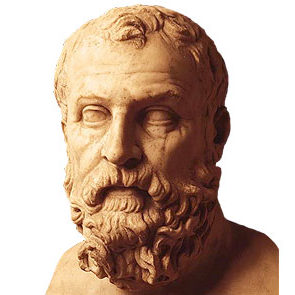
I’m a fairly new member of the CRSN Executive Committee. I’m a graduate student at UCL, and I came to work on classical reception through a fairly organic process. My MA thesis was to all intents and purposes a ‘reception’ piece that looked at how Solon was represented and used as a historical figure in fourth- and fifth-century Athenian thought. This involved looking at interpretations of his capacity as a lawgiver, poet and sage in a variety of different sources from drama to rhetoric, and in philosophical dialogue. My MA supervisor suggested looking at eighteenth-century interpretations of Solon the Athenian lawgiver and sage, and this area proved to be very fruitful. Looking at how Solon was used in constitutional thought at that time means trying to understand how a whole generation of writers viewed the classical world, and Athens in particular, and then understanding how their view of the past has helped shape modern understanding. Their interpretations of the ancient world and concepts of democracy and legislation still affect us in the 21st century.
In terms of what I do now, classical reception has proved very useful at times as I do a lot of Classical Civilisation and Latin tutoring. So, for example, most people have seen ‘Troy’, which helps them engage with the Iliad and Odyssey as well as ‘300’. There is often an overlap if the students have studied any tragedy as part of their English courses; studying English literature can help give them certain tools that are also applicable when it comes to approaching Greek tragedy for the first time.
What have been my main influences? Well, one of the most important writers for this work has been the French classicist Claude Mossé. She provided the initial overlap between Solon and the eighteenth century through her work on legislators in Antiquity, and her work Antiquité dans la Révolution française provided further impetus to investigate how the eighteenth century viewed Antiquity through a combined historical and political lens. This is relevant to the consequences that the reworkings of classical ideologies have had for Modern Europe, with the embracing of concepts of constitutionalism and democracy as studied in the work of Kostas Vlassopoulos. Ian Macgregor Morris’ work as an intellectual historian writing on the political impact of Lycurgus the Spartan lawgiver has been highly influential in helping shape much of the methodological framework that I shall be using to analyse the eighteenth century sources referring to Solon. Céline Spector’s work on Montesquieu and Rousseau has helped shape my interpretations of their political thought. David Wisner’s Cult of the Legislator in France 1750 – 1830 has also been influential in providing insight into many of the contextual elements that are involved in approaching the eighteenth-century interpretations of the classical legislators.
In terms of the challenges to classical reception as a field within the academy today, it is now being taken seriously as a field by the classics community at large, for the opportunities it provides in refreshing research and both quantifying and qualifying the impact of the classical world on different periods in world history. Classics in general is facing the challenge of remaining relevant to the modern world, so by association classical reception also faces this same problem. When doing any cross-disciplinary work, which is often an essential part of reception, there may well be initial skepticism from those in other fields. I’ve spent a great deal of time discussing my topic, and the wider subject of the uses of the classics in the eighteenth century, with those who work in the field of intellectual history and the history of political thought. It’s clear that there are fruitful opportunities for collaboration here.
The greatest difficulty I’ve personally faced has been how to engage with the eighteenth-century texts in the same way that those in the fields of eighteenth-century studies and intellectual history do. So many methodological works exist on how to approach and engage with the material, even before considering issues such as contextualisation and how the different texts of the eighteenth century engage in dialogue with one another. I’m currently writing my PhD upgrade piece, and the biggest challenge I anticipate facing is how to merge the methodologies of intellectual history and the history of political thought with those of classical reception to create a framework for analysis. This raises a more general difficulty: how does someone working in the field of classical reception make their work recognisable and relevant to those in other fields?
The advice I’d give to anyone thinking about working on a thesis related to classical reception is simply: do it. Reception is a wide, varied, exciting and innovative field offering many opportunities for cross-disciplinary study, almost limitless opportunities for a graduate to pursue pioneering and novel research and a great deal of flexibility in approaches where perhaps other strands of classical research have become slightly dogmatic.

